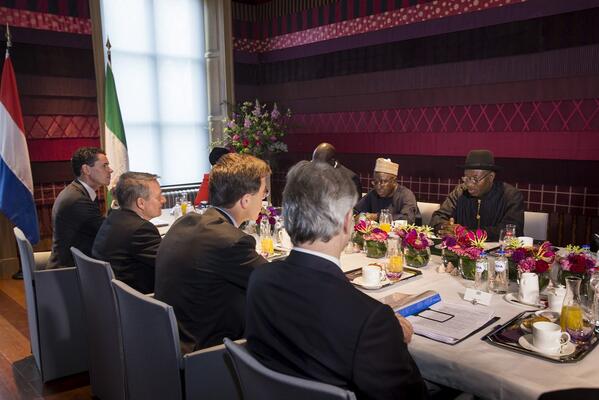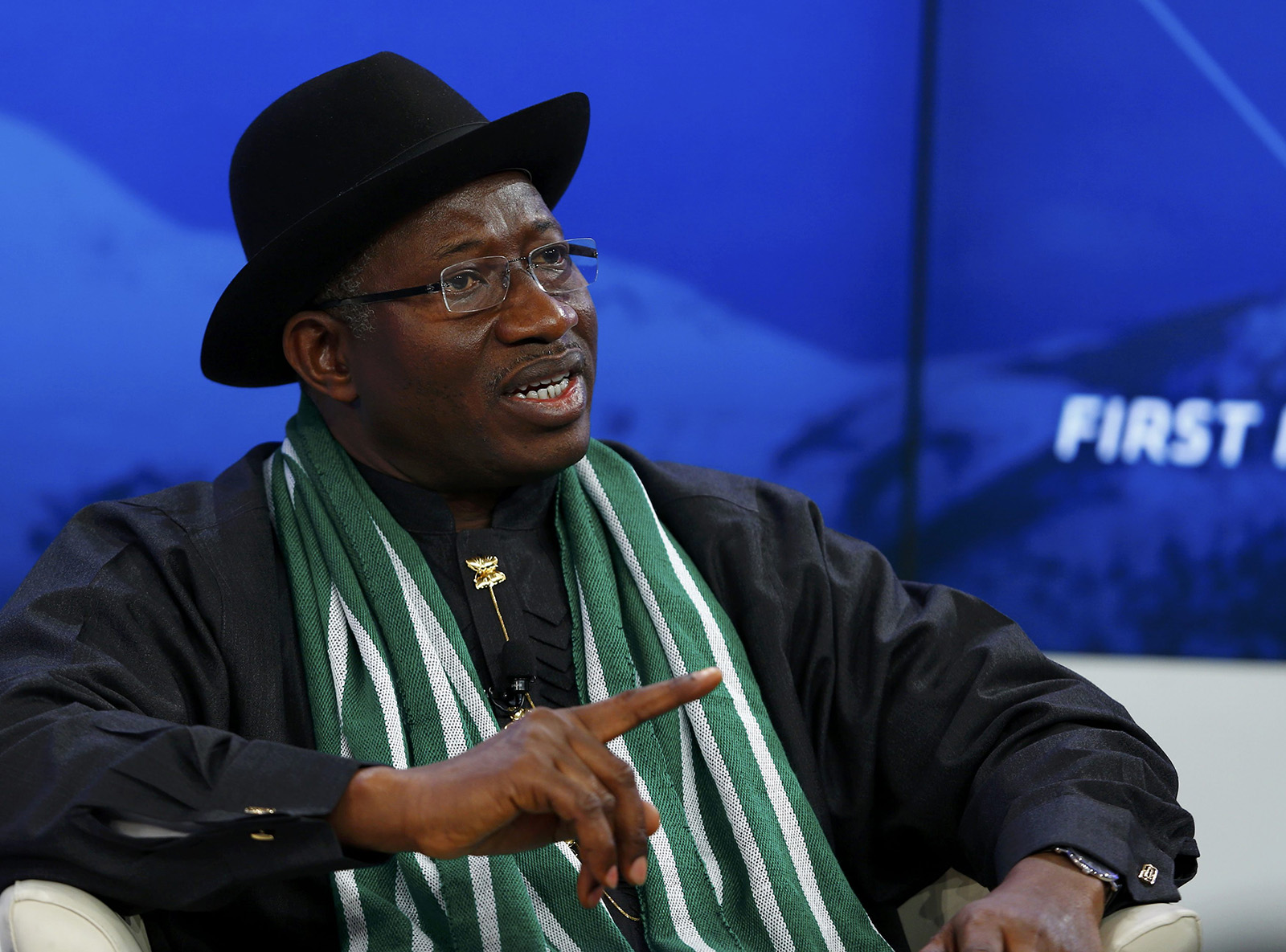The Nigerian President and head of the delegation to the Nuclear Security Summit 2014, holding at The Hague has restated Nigeria’s commitment to convert limited stock of highly enriched uranium to lowly enriched uranium.
In achieving this President Jonathan who arrived Netherlands on Sunday has said “Nigeria is working in collaboration with the United States United States of America and China for the conversion of Nigeria’s limited stock of Highly Enriched Uranium used in its research reactor to Lowly Enriched Uranium,”
The president said that Nigeria was in support of the immediate commencement and early conclusion of negotiations on a “non-discriminatory, multi-lateral and internationally and effectively verifiable treaty banning the production of fissile materials for nuclear weapons”.
“Nigeria shares the view that fewer nuclear weapons translate into more nuclear security, while at the same time reducing the risk of proliferation.

At the moment a reactor for academic purposes –used in training how to run a nuclear power plant runs on enriched Uranium weapon grade material said Professor Sunday Jonah of the Centre for Energy Research Training Ahmadu Bello University Zaria, a centre under the Nigerian Atomic Energy Commission. He made the remark at the Nuclear Knowledge Summit NKS at Amsterdam. This is the primary motivation of Nigeria in the proceedings in the Netherlands.
Long before President Barak Obama’s initiative to raise awareness on global nuclear security, the Nigerian government had setup the Nigerian Nuclear Regulatory Authority with the mandate to track the usage of radioactive sources in the exploration of oil and medical facilities. The Nigeria Nuclear Regulatory Authority is mandated by the Nuclear Safety and Radiation Protection Act of 1995. However, with the increasing activities of insurgents and Nigeria’s limited stock it became imperative for Nigeria to begin to guard itself against nuclear terrorism.
President Jonathan has also reiterated the commitment of the Federal Government to sustain its weight behind an executive bill submitted to the National Assembly to accommodate the country’s obligations under international treaties on nuclear safety and security. This he remarked was in line with Nigeria’s commitment to non-proliferation of nuclear weapons and the peaceful use of nuclear technology.
“Nigeria accords high priority to all global efforts toward ending the proliferation of weapons of mass destruction and their means of delivery, including nuclear weapons.
“To this end, Nigeria has since the last summit in Seoul, strengthened the legal framework for fighting terrorism through the adoption in 2013, of an amendment to its Terrorism (Prevention) Act, thus ensuring the implementation of more robust counter-terrorism measures in the country.
“Nigeria’s ratification of some international treaties and conventions in the realm of nuclear safety, security and safeguards has necessitated the review of the Nigerian Nuclear Regulatory Authority Act resulting in the recent decision of the Government to submit a new bill to parliament for consideration and passage into law in order to accommodate our obligations under these instruments.
“The instruments include the Convention on the Physical Protection of Nuclear Materials and its amended version of 2005, the International Convention for the Suppression of Acts of Nuclear Terrorism.”
He pointed out that the bill, which is awaiting passage by the National Assembly, is to ensure the fulfillment of Nigeria’s international and national Nuclear Safety, Security, Safeguards and radiation protection obligations, by domesticating the international treaties.
The nuclear reactor installed by the Chinese was commissioned in 2004 during the administration of President Olusegun Obasanjo, even though the contract was awarded during the government of General Sani Abacha, however the status of a pariah state at then hindered work on the reactor.
With the raging insurgency by Boko Haram in some parts of the country, Professor Sunday remarked that there was adequate protection in place at the reactor location in Nigeria; however the best protection of the material from non-state actors like Boko Haram will be the immediate conversion to low grade uranium. Experts, policymakers and politicians around the world agree that nuclear terrorism poses a grave threat that must be prevented. Not very Last year in neighboring Niger Republic suicide bombers attacked a uranium mine owned by Nuclear company Areva killing 26 people and injuring 30 people, the Somair mines was attacked by Alqaida in the Islamic Maghreb known to have links with Boko Haram.
President Goodluck Jonathan was accompanied on the trip by the Minister of Defense Lt.Gen Aliyu Mohammed Gusau, the National Security Adviser Col. Sambo Dasuki and the Minister of Foreign Affairs Amb. Aminu Wali amongst several other officials of government.
The next and last in a series of Nuclear Security Summits will be hosted by the United States President Barrack Obama in Washington DC in 2016.
Alkasim Abdulkadir is a multi-media journalist, he has worked as a Producer for BBC Media Action and as a news contributor for CNN, Aljazeera, France 24 and Guardian UK. He is Contributing Editor at The Trent. He sent in this report from the Hague where he is on the Nuclear Security Course of the RNTC







